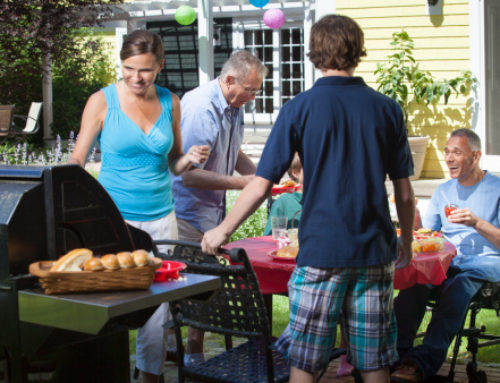Be sure your loved one is properly swallowing her food at meal times.
If your loved one has Parkinson’s disease, please be very wary of any increased episodes of coughing in the patient, as well as any changes in his voice quality. These symptoms could be the sign of a swallowing problem that, in its most severe form, can be fatal.
Most people are aware of the most common effects of the disease: shaking, slow movement, limb stiffness and trouble walking. But PD also can cause other physical problems, such as difficulty swallowing, chewing, speaking and the movement of food through the digestive system. All of these functions are dependent upon muscles that could be weakened due to PD’s effects on the brain.
Many PD patients in the later stages of the disease may have trouble swallowing, which is known as dysphagia. This can affect the quality of life of your loved one, and can cause serious complications:
- Aspiration pneumonia
- Dehydration
- Malnutrition
A patient who has trouble chewing and swallowing can sometimes aspirate food, which can lead to pneumonia and other serious problems. In fact, the NIH tells us that the top cause of death for all PD patients is aspiration pneumonia. This happens when the lungs and airways get infected or inflamed because of liquids or foods entering the lungs. PD patients also are at higher risk for choking due to food entering the airways. Note that your loved one’s eating can be made easier with PD dining products, such as the Non-Slip Scoopy Scoop Plate, or the Extra Large Clear Plate Guard.
As the caregiver, you should know the warning signs of a swallowing problem in your loved one. In some patients, they may seem to be eating or drinking normally, but aren’t. Fortunately, with early intervention and proper management of swallowing issues, major complications in your loved one can be avoided.
Warning Signs
Be wary if you see your loved one drooling. The urge to swallow tends to lessen in many PD patients, and they will not swallow as much as they once did. Less swallowing causes more saliva to build up, which can lead to drooling. This build up of saliva also can cause phlegm to build in the throat, which can cause problems if left untreated.
There are anticholinergic drugs that can reduce the drooling problem, but these drugs also can cause dry mouth, and other problematic side effects.
Another warning sign is coughing or choking after eating. This could mean food is stuck in the throat or has gone into the windpipe. Coughing is a good sign in a way; it is a reflex that happens when food goes down the wrong way. It can keep food and liquid out of the lungs. But sometimes food can go into the wind pipe without any sign of choking or coughing. This is also known as silent aspiration.
Continued in Part II…


